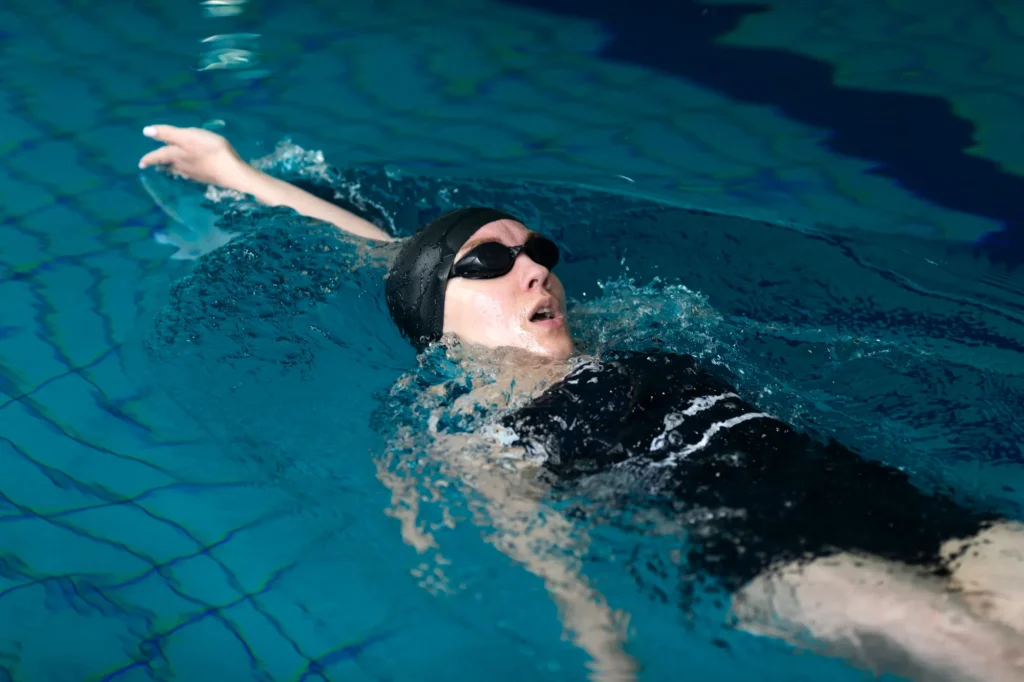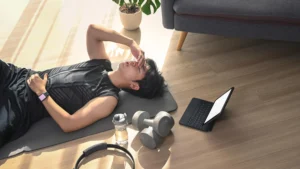Swimming: a therapeutic method or just a hobby

Swimming is considered one of the safest sports because the risk of injury is virtually eliminated. According to studies, the probability of getting injured while swimming is less than 0.2%, which makes it safer than most other physical activities. In addition, it has long been proven that swimming has a positive effect on our bodies. If you regularly work out in the pool, you’ve probably had time to notice the impact of this sport on your health.
Let’s see if everyone can do swimming? Doesn’t swimming harm people with serious illnesses? Or swimming is a sport that not only brings pleasure, but also helps in the treatment of diseases of the musculoskeletal system and cardiovascular system?
Benefits of swimming for diseases of the musculoskeletal system
Swimming has practically no contraindications and is suitable for people of different ages and physical fitness. Exercise in the pool really favorably affect our body.
The benefits of water procedures include not only improving the figure and maintaining physical fitness. Swimming is especially useful for people with diseases of the musculoskeletal system, such as osteochondrosis, scoliosis, arthritis and intervertebral hernias. It helps to:
- strengthen the muscular corset around the spine;
- prevent herniated discs;
- improve joint mobility.
That is why experts often recommend swimming as a preventive measure and as a supplement to the treatment of diseases of the musculoskeletal system.
However, it is important to remember that classes in the pool are not a panacea for all pathologies. For effective treatment, it is necessary to consult a specialist who will diagnose, prescribe an individual course of treatment and recommend additional procedures to restore and improve the condition of the body.
Contraindications to swimming lessons
Can swimming be recommended to absolutely everyone? Unfortunately, no. There are certain factors that prohibit visiting a swimming pool. According to the recommendations of the World Health Organization and a number of medical studies, these contraindications include:
- infectious or chronic diseases in the stage of exacerbation;
- heart pathologies that preclude prolonged intense exertion;
- allergic reactions;
- serious diseases of the musculoskeletal system.
Virtually any disorder in the musculoskeletal system causes improper load distribution and misalignment. Self-treatment, even with such a harmless method as swimming, can aggravate the problem. Therefore, it is important to consult with a specialist before you start exercising.
Recommendations of specialists on visiting the pool
Swimming is a great sport that helps to keep fit at any age. However, to maximize the benefits, it is important to consider age specifics:
- Children: Swimming promotes proper physical development and strengthens the immune system.
- Youth: Used to keep fit and relieve stress.
- Middle-aged people: Helps to strengthen the cardiovascular system and prevent joint problems.
- Older adults: Provides gentle exercise to muscles and joints, improving overall health.
However, swimming is not a substitute for full treatment. If you are diagnosed with a serious disease, do not self-medicate and do not use water procedures as the main means of therapy.
To quickly eliminate problems of the musculoskeletal system, the specialists of our center recommend making an appointment. During the consultation, the doctor will conduct an examination and prescribe an individual course of treatment, which may include:
- kinesitherapy;
- soft osteopathic techniques;
- therapeutic massages.
In the absence of contraindications, swimming may be recommended as an adjunct to the main course of treatment or for rehabilitation.
If the doctor has authorized swimming lessons, adhere to his recommendations and do not overestimate your own abilities. Regularity, moderation and following safety rules will help you maximize the benefits of this sport without risking your health. It is important to choose swimming pools with good sanitary conditions, observe the rules of personal hygiene, warm up before training and avoid overexertion.




